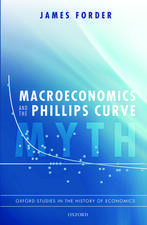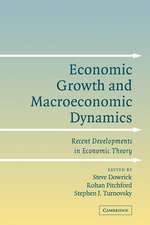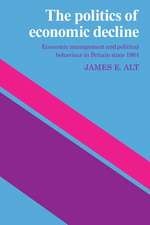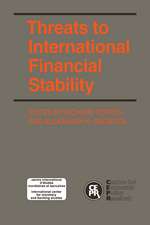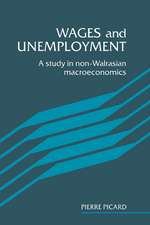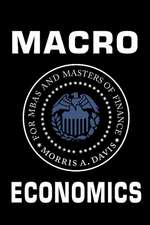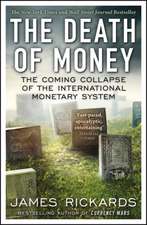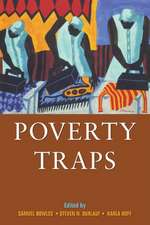The New Economics of Inequality and Redistribution: Federico Caffè Lectures
Autor Samuel Bowlesen Limba Engleză Paperback – 11 iul 2012
| Toate formatele și edițiile | Preț | Express |
|---|---|---|
| Paperback (1) | 231.98 lei 6-8 săpt. | |
| Cambridge University Press – 11 iul 2012 | 231.98 lei 6-8 săpt. | |
| Hardback (1) | 516.05 lei 6-8 săpt. | |
| Cambridge University Press – 11 iul 2012 | 516.05 lei 6-8 săpt. |
Din seria Federico Caffè Lectures
-
 Preț: 236.16 lei
Preț: 236.16 lei -
 Preț: 289.10 lei
Preț: 289.10 lei -
 Preț: 280.91 lei
Preț: 280.91 lei - 11%
 Preț: 462.32 lei
Preț: 462.32 lei -
 Preț: 405.10 lei
Preț: 405.10 lei -
 Preț: 243.29 lei
Preț: 243.29 lei -
 Preț: 366.03 lei
Preț: 366.03 lei -
 Preț: 366.03 lei
Preț: 366.03 lei -
 Preț: 323.86 lei
Preț: 323.86 lei -
 Preț: 281.67 lei
Preț: 281.67 lei
Preț: 231.98 lei
Nou
Puncte Express: 348
Preț estimativ în valută:
44.39€ • 46.35$ • 36.74£
44.39€ • 46.35$ • 36.74£
Carte tipărită la comandă
Livrare economică 04-18 aprilie
Preluare comenzi: 021 569.72.76
Specificații
ISBN-13: 9781107601604
ISBN-10: 1107601606
Pagini: 203
Ilustrații: 34 b/w illus. 1 table
Dimensiuni: 138 x 215 x 10 mm
Greutate: 0.3 kg
Ediția:New.
Editura: Cambridge University Press
Colecția Cambridge University Press
Seria Federico Caffè Lectures
Locul publicării:New York, United States
ISBN-10: 1107601606
Pagini: 203
Ilustrații: 34 b/w illus. 1 table
Dimensiuni: 138 x 215 x 10 mm
Greutate: 0.3 kg
Ediția:New.
Editura: Cambridge University Press
Colecția Cambridge University Press
Seria Federico Caffè Lectures
Locul publicării:New York, United States
Cuprins
List of figures; List of tables; Preface; 1. The new economics of inequality and redistribution; 2. The economic cost of wealth inequality; 3. Feasible egalitarianism in a competitive world; 4. Cosmopolitans, parochials and the politics of social insurance; 5. Altruism, reciprocity, and the politics of egalitarian redistribution; 6. Conclusion; Appendices; Works cited; Index.
Recenzii
'Over the past forty years, the gap between rich and poor has widened dramatically in many industrialised countries, and what Americans call the 'middle class' has shrunk. Samuel Bowles argues that, quite apart from its moral dimension, such inequality is economically inefficient. It leads to excessive expenditure on the enforcement of property rights and on crime prevention. It also reduces labour productivity. He argues that a redistribution of income and wealth would increase productivity and encourage entrepreneurship amongst social strata that are currently locked out of credit markets. These stimulating essays are a valuable contribution to the current debate about equality.' Robert Rowthorn, Emeritus Professor of Economics, University of Cambridge
'Bowles and his collaborators show how, in a globalized world economy, independent democratic national states can implement programs of egalitarian redistribution and social insurance. Included are better educational opportunities, employee ownership of workplaces, land reform, stimulus to the formation of cooperatives, support of home ownership, expansion of subsidies designed to promote employment and increase earnings among the poor. But even better, Bowles also considers the Unconditional Basic Income proposed by Van Parijs and van der Veen, which would truly be a step in the direction of a society of real freedom for all. The book is especially relevant for all of us who would like to use the instruments of economic policy to advance the main principles of justice.' Eduardo Suplicy, Fundação Getúlio Vargas, Member of the Brazilian Senate, and Founder of the Workers' Party of Brazil
'Samuel Bowles offers both the world of science and the world of politics an extremely valuable synthesis of new thinking about inequality, integrating innovative analyses of fundamental causes, sustainable solutions, human behaviour and normative conceptions. Both unjustified 'equality pessimism' and traditional redistributive approaches are put to the test of rigorous analysis and empirical research. The outcome is an inspiring account of ways and means to create more just societies in today's global world.' Frank Vandenbroucke, University of Leuven, and former Minister, Belgian Government
'Bowles and his collaborators show how, in a globalized world economy, independent democratic national states can implement programs of egalitarian redistribution and social insurance. Included are better educational opportunities, employee ownership of workplaces, land reform, stimulus to the formation of cooperatives, support of home ownership, expansion of subsidies designed to promote employment and increase earnings among the poor. But even better, Bowles also considers the Unconditional Basic Income proposed by Van Parijs and van der Veen, which would truly be a step in the direction of a society of real freedom for all. The book is especially relevant for all of us who would like to use the instruments of economic policy to advance the main principles of justice.' Eduardo Suplicy, Fundação Getúlio Vargas, Member of the Brazilian Senate, and Founder of the Workers' Party of Brazil
'Samuel Bowles offers both the world of science and the world of politics an extremely valuable synthesis of new thinking about inequality, integrating innovative analyses of fundamental causes, sustainable solutions, human behaviour and normative conceptions. Both unjustified 'equality pessimism' and traditional redistributive approaches are put to the test of rigorous analysis and empirical research. The outcome is an inspiring account of ways and means to create more just societies in today's global world.' Frank Vandenbroucke, University of Leuven, and former Minister, Belgian Government
Notă biografică
Descriere
A novel and optimistic account of the possibility of a more just economy.





